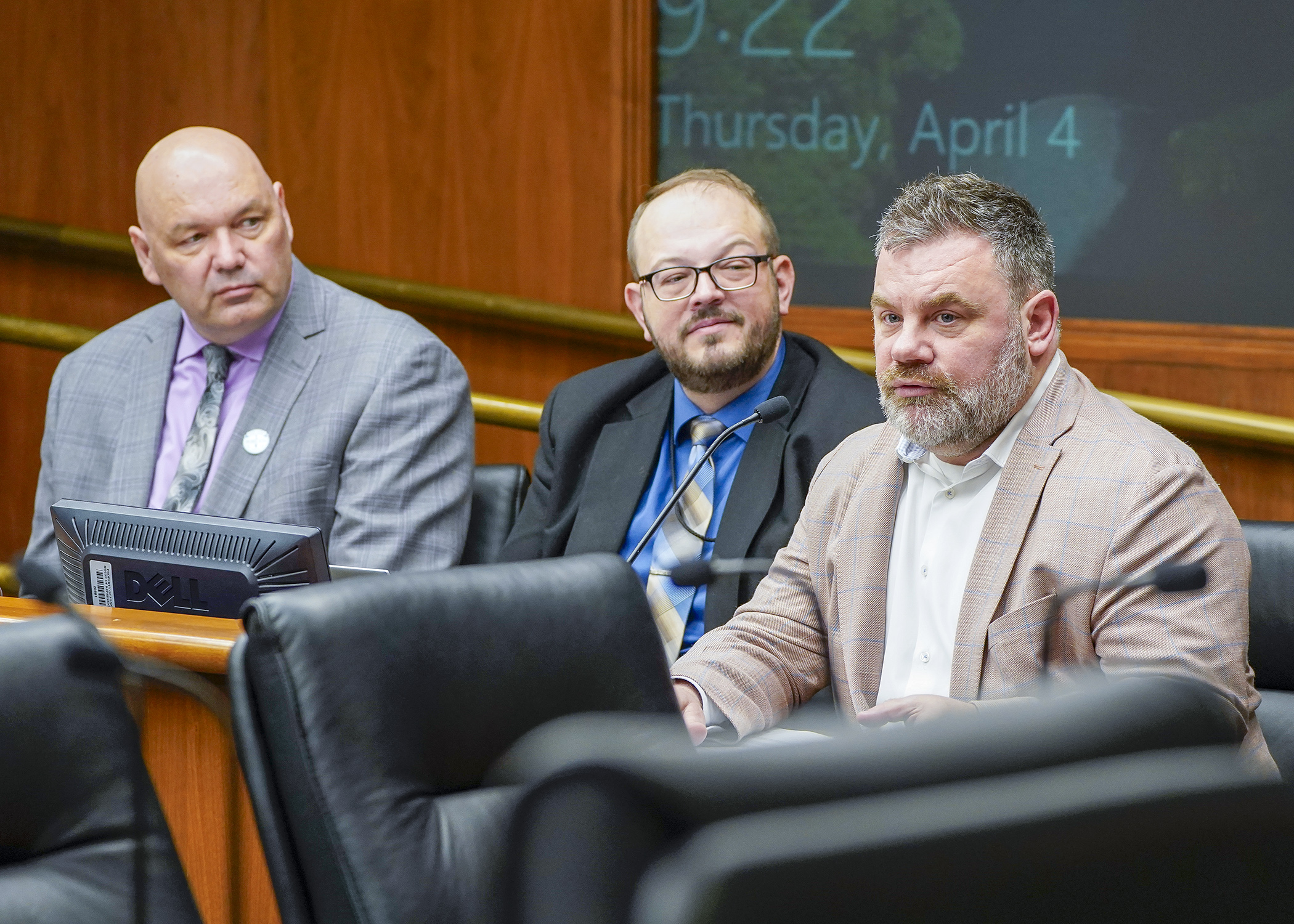State’s smallest cities could see boost in road funding under transportation bill
For small cities waiting for state aid to repair their roads the check is in the mail. And a proposal by Rep. Jeff Brand (DFL-St. Peter) would make sure it’s not postdated.
Last year, for the first time, the Legislature provided a dedicated revenue source for cities with a population under 5,000 that were left out of the constitutionally mandated municipal state-aid street funding. Small cities were to get money from a new delivery fee, as well as a portion of the sales tax from auto parts, for an anticipated $25 million annually.
However, money in the Small Cities Assistance Account is estimated to be only $2.5 million in fiscal year 2024 because the delivery fee will begin July 1 and the sales tax revenue going to roads is being phased in. The money will be there, but it might not be for a few years if the Department of Transportation collects the money from the fees before distributing it to cities.
 Cap O’Rourke, executive director at the Minnesota Association of Small Cities, and St. Augusta City Administrator Bill McCabe, left, testify in support of a bill that would provide small cities assistance account funding. Rep. Jeff Brand, center, is the sponsor. (Photo by Andrew VonBank)
Cap O’Rourke, executive director at the Minnesota Association of Small Cities, and St. Augusta City Administrator Bill McCabe, left, testify in support of a bill that would provide small cities assistance account funding. Rep. Jeff Brand, center, is the sponsor. (Photo by Andrew VonBank)That’s where HF4872 comes in.
Laid over by the by the House Transportation Finance and Policy Committee Thursday, it would appropriate $25 million from the General Fund in fiscal year 2025 for the small cities account.
Rep. Frank Hornstein (DFL-Mpls) said there are “amazing” amounts of money coming in shortly, but there is a gap to fill in the very, very short term. The bill would start getting money out to cities this year.
Hornstein, the committee chair, does not expect the money to be counted as part of the committee’s $2 million target in the supplemental budget agreement.
Money in the Small Cities Assistance Account is distributed to 700 cities by a formula which factors in population and miles of roads. The tax base in most of those cities makes regular road maintenance unaffordable without state help, Brand said.
Related Articles
Search Session Daily
Advanced Search OptionsPriority Dailies
Speaker Emerita Melissa Hortman, husband killed in attack
By HPIS Staff House Speaker Emerita Melissa Hortman (DFL-Brooklyn Park) and her husband, Mark, were fatally shot in their home early Saturday morning.
Gov. Tim Walz announced the news dur...
House Speaker Emerita Melissa Hortman (DFL-Brooklyn Park) and her husband, Mark, were fatally shot in their home early Saturday morning.
Gov. Tim Walz announced the news dur...
Lawmakers deliver budget bills to governor's desk in one-day special session
By Mike Cook About that talk of needing all 21 hours left in a legislative day to complete a special session?
House members were more than up to the challenge Monday. Beginning at 10 a.m...
About that talk of needing all 21 hours left in a legislative day to complete a special session?
House members were more than up to the challenge Monday. Beginning at 10 a.m...